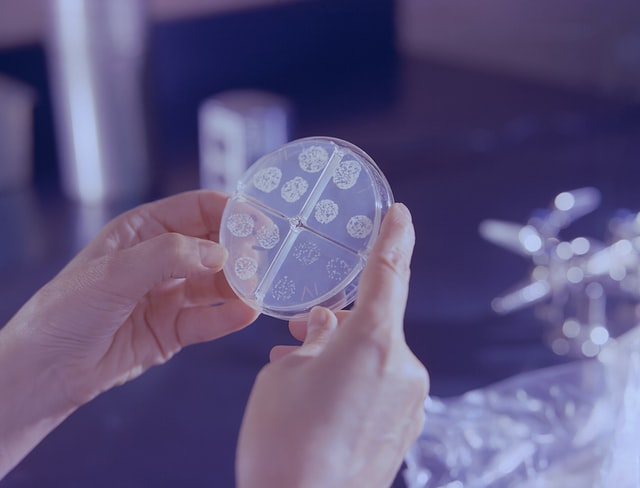Sugar-free energy drinks are a popular choice for many people. They give you an extra boost of caffeine and sugar without the calories because they don’t contain any added sugars as traditional sodas do.
But is this really such a good idea? Let’s look at what happens when you drink these beverages:
- Sugar-free energy drinks are high in artificial sweeteners that can potentially cause weight gain.
- Caffeine can lead to insomnia, headaches, or stomachaches if consumed too late in the day.
- Caffeine can also lead to heart palpitations or arrhythmia if consumed too early in the day when you are still tired from sleep deprivation.
- Sugar-free energy drinks can also cause a spike in blood sugar levels, depending on their ingredients.
In my opinion, the benefits of these beverages don’t outweigh their risks because they are full of chemicals and could have too many harmful effects.
However, let’s dig deeper!
Why are sugar-free energy drinks bad for you?
Sugar-free energy drinks are marketed as healthier alternatives to traditional energy drinks, but they can be just as bad for you. The problem with sugar-free products is that these products often contain artificial sweeteners, which have been linked to numerous health problems.
Side effects such as high blood pressure and irregular heartbeats are possible side effects of these drinks.
What are artificial sweeteners?
Artificial sweeteners are substances that have a sweeter taste than sugar and provide a lower number of calories. They are used as a substitute for sugar in many foods, including beverages. The most common types of artificial sweeteners are aspartame, saccharin, and sucralose.
These are added to foods and beverages for a variety of purposes. They help improve taste without the extra calories, reduce food’s glycemic index, or provide health benefits such as lowering blood pressure by lowering sugar levels.
Some artificial sweeteners have only a small number of calories, while others still contain high amounts of carbohydrates which might affect your daily caloric intake if consumed too often.
They do not contain the same calories as sugar (or other natural sugars like honey or maple syrup), but they can cause side effects such as headaches, heartburn, gas/bloating, dizziness/nausea, etc.
Artificial sweeteners were approved by the FDA for use in foods and beverages; however, some companies market their products with “sugar-free” labels even though they contain artificial sweeteners.
Where does the energy come from?
Many sugar-free energy drinks are marketed as a healthier alternative to coffee. Still, it is essential to remember that they are not actually providing energy unless they have caffeine. Sugar may be an effective source of calories and carbohydrates that aids in the conversion process for converting sugar into energy. Still, the boost from sugar-free energy drinks will be influenced by caffeine content.
Caffeine is used in sugar-free energy drinks sometimes to compensate for the lack of sugar. It increases alertness and wakefulness, which are the most important factors when it comes to feeling energized. However, caffeine should be used in moderation because too much can cause sleepiness or anxiety symptoms.
Are artificial sweeteners better than sugar?
Sugar-free energy drinks are not as bad for you as sugar because artificial sweeteners, unlike sugar, do not contribute to cavities and other teeth problems, and immediate weight gain.
Regular energy drinks are often high in caffeine content, while the zero-calorie versions can be found with little to no stimulants. Additionally, each drink has different ingredients that may have health effects.
Sugar-Free Energy Drinks Risk
While sugar-free energy drinks are marketed as a healthier alternative to sugary beverages, caffeine can negatively impact mood and emotional health. In addition to that, the National Center for Complementary and Integrative Health released a report that stated that energy drinks, in general, may cause irritability, restlessness, nervousness, or insomnia.
Caffeine sensitivity is also unpredictable. Those with anxiety and depression may suffer more intense effects from caffeine.
It is important to note that even sugar-free energy drinks, low in calories, pose risks. In particular, these drinks can cause dehydration or a dangerous spike in blood pressure if consumed excessively.
Physical Risks
Energy drinks may cause rapid heartbeat and blood pressure increases. Furthermore, caffeine can cause dehydration and overexertion of the body.
The risks of regular and sugar-free energy drinks are not just limited to health effects. These energy drinks may cause gastrointestinal upset, acute headaches, chronic headaches, and various caffeine-induced psychiatric disorders.
Alcohol Hazards
Sugar-free energy drinks are a growing trend in America. Combining alcohol and sugar-free energy drinks has multiple dangers, such as increased blood pressure and adverse effects on the liver. Alcohol also compounds the negative side effects of energy drinks, such as irritability and heart problems.
In addition, alcohol and energy drinks are often mixed together, increasing the risk of binge drinking.
Binge drinking is defined as 4/5 drinks for women or 5/6 drinks for men. It can increase the risks of injuries, unwanted sex, and driving while intoxicated.
Cognitive and Sleep Problems
Caffeine and other stimulants may negatively affect a person’s cognitive or sleep performance. Additionally, people who consume energy drinks are more likely to have insomnia.
Although moderate consumption of energy drinks is safe for most people, precautions should be taken if excessive consumption becomes a problem.
Some diet energy drinks are proven to be detrimental to cognitive and sleep problems. People who want a healthy lifestyle should increase physical activity, eat nutrient-rich foods, and avoid overconsumption of these beverages.
Both cognitive and sleep problems can lead to energy depletion, so the individual needs to have a good night’s rest.
Do sugar-free energy drinks make you gain weight?
People who drink sugar-free energy drinks often consume more during their meals. This can cause weight gain and other health problems because it’s difficult to control your portion sizes when you’re drinking the beverage.
Although some energy drinks are marketed as sugar-free, they still contain artificial sweeteners. Switching up your routine with other beverages like water or juice can help you feel more energized without the unnecessary calories and sugars that come from these types of drinks.
To successfully maintain your weight loss, you may avoid these adverse effects by limiting your meal portions and maintaining a balanced and healthy diet while engaging in physical exercise.
What is the difference between sugar-free and no sugar added energy drinks
Energy drinks that do not contain any sugar are also regulated by the FDA, and this allows consumers to make wise choices when they’re grocery shopping and buy a healthy drink for them.
A no-sugar-added and sugar-free energy drinks are a type of sugar-free beverages.
The sugar-free term is used to describe drinks that contain less than 0.5g of sugar per serving.
No sugar added term describes drinks that usually do not have any sweeteners like fruit or milk but may still be naturally occurring sugars such as lactose and fructose from the ingredients listed on the label.
Alternatives to sugar-free energy drinks
Some people are trying to cut out sugar-free energy drinks from their daily routine. According to the National Institute of Health, there is a lot of caffeine in these products that can be tough for some people to give up. Caffeine withdrawal may occur if you decide to quit cold turkey without any alternatives on hand.
People who consume these highly caffeinated products become dependent on them quickly and may start experiencing adverse side effects like headaches, fatigue, irritability, or depression.
To avoid the many side effects of sugar-free energy drinks, it’s important not to drink too much. This can be done by cutting down on your intake or drinking a healthier alternative such as coffee with milk and cinnamon instead of an energy drink.
Here are some healthy alternatives to all energy drinks:
Water
Water is an excellent alternative to sugar-free energy drinks. This type of drink has 0 calories and 0g fat in every serving. One would also have no risk of impaired health by consuming water as it is entirely calorie-free.
Green tea
Sugar-free energy drinks are unhealthy alternatives to coffee and other caffeinated beverages. Green tea is a gentler option for your body while still containing the benefits of caffeine. Theanine in green tea calms down the effects of caffeine, making it a healthier choice for all ages.
Amino acid supplements
Amino acid supplements provide a great source of fuel for your body. They are less jolt than caffeine but can still help with fatigue or exercise.
BCAAs are often used to promote muscle recovery and synthesis while also inhibiting the buildup of serotonin.
Coffee
Coffee is an excellent alternative to sugar-free energy drinks. Coffee has moderate caffeine content and may help with withdrawal symptoms.
If you exercise, coffee is a drink that can help improve endurance during cardio sessions. However, it’s always good to double-check these things with your doctor and make sure you consume coffee in moderation if you have underlying conditions.
Are There “Healthier” Energy Drinks?
Many people assume that energy drinks are bad for you, but there are various healthy options available. In fact, some companies even make energy drinks with plant-based ingredients and low calories.
While energy shots are a convenient option for busy people, the added sugar and caffeine can be dangerous. The best part about zero added sugar in these plant-based drinks is that you get all the benefits without feeling guilty.
Some companies have begun to market sugar-free versions that help people with health issues such as hypoglycemia. However, theanine is a natural compound found in green tea, which has been shown to reduce anxiety by 15 times its level of caffeine intake compared to a cup of green tea.
The lack of artificial sweeteners makes these energy drinks healthier because they do not contain preservatives or chemicals like other brands on the market.
Final thoughts
Sugar-Free energy drinks are not bad for you, per-se. They are a viable option when looking to cut down on sugar in your diet and still get the energy boost that comes from them. Still, remember they do contain artificial sweeteners, which could have side effects like headaches or stomach problems.
If this doesn’t sound like an issue for you, then, by all means, drink away! But if it does seem like something worth considering, check out some of our other blog posts about how we can help cut back on sugar intake without sacrificing taste.




